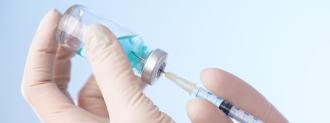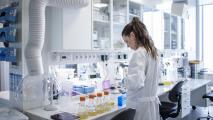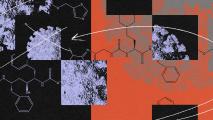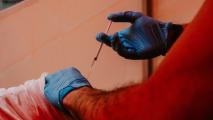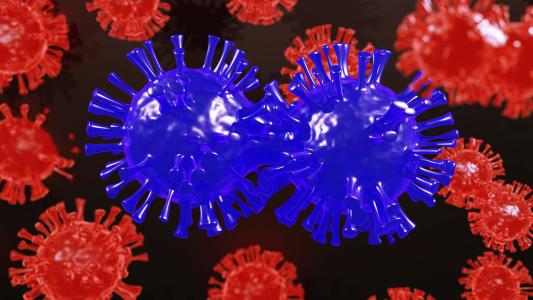A single dose of healthcare giant Johnson and Johnson’s coronavirus vaccine is 66% effective at preventing moderate to severe disease 28 days after vaccination, according to the newly released topline results of a phase 3 trial.
For just severe cases, it’s 85% effective.
That’s not as high as the efficacy achieved by Moderna and Pfizer’s vaccines — 95% against any symptomatic infection — which are already authorized for use in the U.S.
However, it is above the 50% effectiveness threshold Anthony Fauci, director of the National Institute of Allergy and Infectious Diseases, said in August would be acceptable — and Johnson and Johnson’s coronavirus vaccine has a few advantages over its predecessors.
Johnson and Johnson’s Coronavirus Vaccine
The purpose of a COVID-19 vaccine is to teach the immune system to recognize the coronavirus before it actually causes an infection. If the virus invades the body later, the immune system will immediately attack it, preventing the vaccinated person from ever getting sick.
There are many types of vaccines. Moderna and Pfizer both developed mRNA vaccines for COVID-19 — those deliver instructions, written in genetic code, that kickstart the immune response.
Johnson and Johnson’s coronavirus vaccine is a different type, called an andenovector vaccine.
This andenovector vaccine uses the shell of a common type of virus — an adenovirus — as a vehicle to deliver a piece of the coronavirus (called the spike protein) into the body. That piece can’t cause an infection or replicate itself, but it is enough to train the immune system to recognize the virus in the future.
The Trial Details
During the phase 3 trial of Johnson and Johnson’s coronavirus vaccine, 43,783 participants in eight countries, including the U.S., received either a single shot of the vaccine or a placebo.
Of those participants, 468 developed symptomatic cases of COVID-19, confirmed by lab tests. The severity of the cases was based on whether the person needed to be admitted to an ICU, their specific symptoms, and other factors.
The vaccine was found to begin protecting participants as soon as 14 days after inoculation, and that protection appeared to get stronger with time — all of the vaccinated participants who developed a severe case did so within 49 days of getting the shot.
No one in the active arm was hospitalized or died during the trial, and the protection provided by the vaccine was generally the same for participants of different races and ages.
However, the vaccine’s ability to prevent COVID-19 did vary across regions: in the U.S., it was 72% effective, but that dropped to 66% in Latin America and 57% in South Africa.
That may suggest that the vaccine isn’t as effective against the South African strain of COVID-19. (However, vaccines in general often don’t work as well in developing countries.)
The Pros of J&J’s COVID-19 Vaccine
One dose of Johnson and Johnson’s coronavirus vaccine might not be as effective as Moderna and Pfizer’s two-dose vaccines, but it has several qualities that could make it easier to distribute.
For one thing, while Moderna and Pfizer’s vaccines must be stored at below-freezing temperatures until use, Johnson and Johnson’s vaccine can survive in a refrigerator for up to three months — that could make it easier to ship and easier vaccinate people in rural or less-developed areas.
A billion vaccine doses would translate into a billion people vaccinated.
Dan Barouch
Additionally, the currently authorized vaccines each call for two doses, delivered several weeks apart, while Johnson and Johnson’s coronavirus vaccine has now been shown to work with just one dose.
That would also make it easier to distribute — people wouldn’t need to visit a doctor’s office or clinic twice — plus, we’d only need half as many doses as the two-dose vaccines.
Johnson and Johnson did launch a phase 3 trial in November to test the efficacy of a two-dose regimen of its vaccine — results of that study are expected to arrive in the summer or fall.
What’s Next?
Now that the phase 3 trial data is in, Johnson and Johnson can submit a request to the FDA for an emergency use authorization. It expects to do that in early February.
That process can take weeks, but if Johnson and Johnson’s coronavirus vaccine is authorized, it could play a major role in protecting people from COVID-19 in the U.S. and beyond before the end of 2021.
“Johnson and Johnson has committed to producing and deploying at least a billion doses of vaccine during this calendar year,” Dan Barouch of Harvard Medical School, who helped develop the vaccine, told CNN.
“If it’s a single-dose vaccine, then a billion vaccine doses would translate into a billion people vaccinated,” he added.
No one in the active arm was hospitalized or died during the trial.
Of those billion doses, the company has committed to producing 100 million specifically for the U.S. before the end of June (although it will only have about 2 million doses to start).
Combined with the doses Moderna and Pfizer have committed to producing for the U.S. by that deadline (200 million and 170 million, respectively), that would be more than enough vaccines for all 250 million adult Americans.
Hopefully, the U.S. will have straightened out its deployment issues by the time they’re ready.
We’d love to hear from you! If you have a comment about this article or if you have a tip for a future Freethink story, please email us at [email protected].
